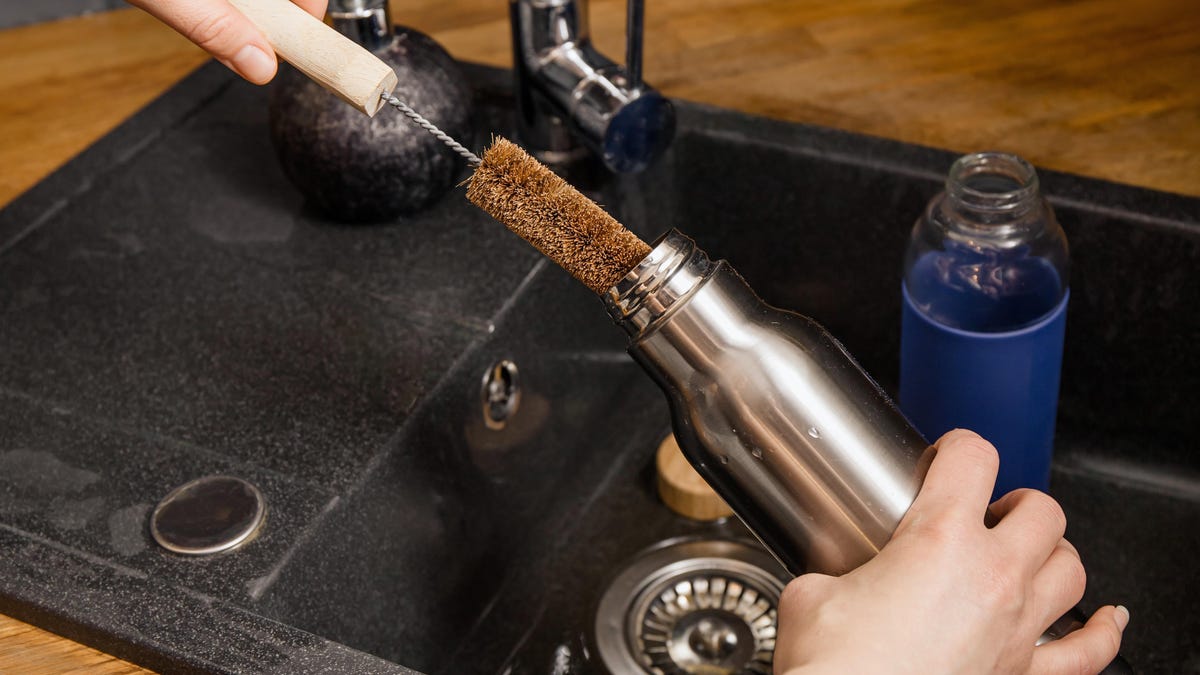How Often Do You Really Need to Clean Your Refillable Water Bottle?

Carrying a reusable water bottle is good for both you and the environment. But without regular cleaning, it may not be as useful and healthy as you think, as bacteria and mold can easily get into the home.
According to one source, reusable water bottles harbor far more bacteria than a toilet seat, including germs that can lead to antibiotic-resistant infections. When a thin layer of bacteria, called biofilm, builds up, it’s even harder to clean the bottle thoroughly. The extension also depends on the type of bottle. Bottles with screw caps and spouts are the roughest, followed by straw caps and wringer caps.
How often should you clean your reusable water bottle?
You should clean your reusable water bottle every day, or every few days if you drink from it less frequently. If you use the bottle for drinks other than water, it’s best to clean it after every use. While this may seem like a lot of work, leaving the bottle unwashed for days or weeks will make it difficult to clean thoroughly later.
How to clean a reusable water bottle
The easiest and safest way to clean your water bottle daily is to use hot water, dish soap and a bottle brush. Soak bottle and cap (and straw if you have one) in soapy water, brush inside and mouthpiece, rinse and air dry. You can also fill the bottle with soap and water, screw on the cap and shake before cleaning, rinsing and drying. If you have a straw, use a narrow cleaning brush or pipe cleaner to clean the inside before rinsing.
Many reusable water bottles can also be washed in the dishwasher, but check the manufacturer’s instructions (popular brands include Yeti , Nalgene , and Stanley ) before tossing your bottle with the rest of your dirty dishes. If possible, place the bottle and other components on the top shelf, away from heat sources.
For more complex build-ups or bottles you use for drinks other than water (like iced coffee), try the deep cleaning method using boiling water, vinegar, or baking soda with a bit of bleach. While they are effective when needed, you should not use them to skip regular cleanings.